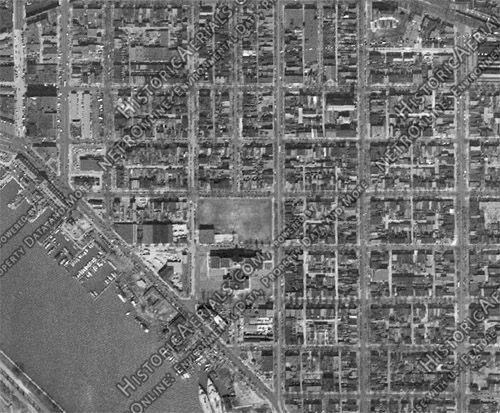Here’s a great op-ed from Jason Lee Byas at C4SS, in which he takes sometime libertarian Nick Gillespie to task for a recent pro-business op-ed in favor of the Keystone XL pipeline: One Reason Not to Build the Keystone XL Pipeline: Justice. From the column:
The Keystone XL pipeline has inspired a lot of controversy. For defenders of freed markets, however, it shouldn't. Libertarians should emphatically and unequivocally oppose the pipeline. . . . Since beginning to plan Keystone XL, TransCanada Corporation has used eminent domain to steal more than a hundred tracts of land in Texas alone. If it gets the green light, the pipeline will run up through the plains like a burglar on a spree. Of course, the company does initially offer those who have what they want a chance to make the transaction voluntarily. When that doesn't work, though, unsuspecting landowners receive letters like the one Julia Trigg Crawford got, saying If Keystone is unable to successfully negotiate the voluntary acquisition of the necessary easements, it will have to resort to the exercise of its statutory right of eminent domain.
As Lysander Spooner once remarked, at least a highwayman does not pretend that he has any rightful claim
to your property.
If you're like the Crawfords, any deviation from that final offer and you'll hear nothing from TransCanada until your land's condemned. As word spreads, landowners feel threatened. They scramble to agree with whatever crumbs they're offered, before their land just gets taken instead.
. . . Whatever justifications are offered for a hypothetical, peacefully acquired pipeline do not justify the real world pipeline. At least no more than justifications for a hypothetical parking lot would justify one built by taking a wrecking ball to Nick Gillespie's home. If the title libertarian
is to mean anything, it must mean a defense of justice. It cannot, and must not, mean endorsing feudalism whenever it's good for the economy.
— Jason Lee Byas, One Reason Not to Build the Keystone XL Pipeline: Justice, at the Center for a Stateless Society (23 February 2013)
Read the whole thing. It’s great.
A couple of quick additional comments from me that I originally posted on the Facebook thread from my sharing the story. As a sidebar to a comment I made about Gillespie’s rhetorical approach, and Jason’s response to it, I mentioned:
. . . My own view is that it is probably pretty near impossible to build a pipeline like Keystone XL without exercising some aggressive government powers; for similar reasons to my reasons for thinking that in a free market probably nobody would have built the Hoover Dam. Not because there’s any reason to think it would be prohibited de jure but because there are reasons to think that, de facto, substitute goods would more or less always be preferable without significant political externalization of the costs of the projects. So justice is a reason to oppose the project as it is actually being conducted, and practicality is a reason to oppose an imaginary free-market version of the same project.
— Charles Johnson, 24 February 2013 11am
Stephan Kinsella and Nathan Scott both asked me what I thought about the use of market means (such as options payments) to assemble rights of way for a long pipeline non-coercively, without resorting to eminent domain in order to coerce holdouts. Now I actually don’t think that high-priced holdouts are the only problem here, but even if they were, I think it would still pose a pretty serious problem for this sort of continental-scale, massively capitalized extractive-industry projects no matter how much fancy contracting you try to do to route around the problem. Emphasis and paragraph breaks added:
Sure, but purchasing options carries a cost. It’s possible for the cost to be outweighed by the benefit of avoiding problems with holdouts. But if the cost of purchasing the options in the first place outweighs the potential benefits of the project as a whole, it won’t matter. So what we have to look at is, either the path of options purchases will be relatively narrow and tied to the concrete details of the project (in which case you replicate the risk of holdouts — the point of failure becomes someone who sees that you need an option from them, and holds out for a higher price on the option) or else will be relatively broad and include multiple possible paths (in which case you allow for routing around the holdouts, but you have to sink more money into paying for options from people whose property you don’t actually end up using).
Now, there may be some discount rate on the options at which the costs of paying for the unused options come out to be less than the costs of of paying for a single-point-of-failure holdout, and also come out to be less than the profits from running the pipeline. But the longer you make the pipeline, the more you multiply those transaction costs, and they don’t necessarily scale linearly with the length of the pipeline either (the longer the path, the wider the possible divergence you have to account for). I think this is a general problem for heavy infrastructure under free market conditions — you’d tend to see a lot more mesh networks and a lot fewer hub-and-spoke networks.
But setting that aside I also have independent reasons for thinking that demand schedules for petroleum would shift significantly leftward, while the costs of extracting and refining petroleum would be significantly higher, with the removal of various state subsidies to oil TNCs. If so there’d be considerably less profit in putting together an oil pipeline and relatively greater investment in producing energy by other means.
— Charles Johnson, 24 February 2013, 11am
I will just add here that mega-industrial projects like Keystone XL, the Hoover Dam and all the rest of them are in many ways deeply undesirable, ecological catastrophes and massively centralizing economic power (either in the hands of the corporate owners or in the hands of the political monopolists who control them, as the case may be). So even if there were some feasible way to build such projects without massive state subsidies in seizing the land and eating the costs — I don’t think there is, but even if there is — they would still, nevertheless, be worth calling out, organizing against, and using freed-market social activism against. But as things stand, as Jason rightly points out, these kinds of massive-scale projects are entirely dependent on the political means of state capitalist confiscation and monopoly.
Another commenter, rather less pleasant, told me that my priorities were obviously insane because, eminent domain or not, The US system is totally dependent on pipelines. . . .
I replied:
That sounds like a problem with the US system, not a problem with property rights. If the former come into conflict with the latter, the latter is always more important. Of course, it is ludicrous to claim that in any given case on the margin it is somehow utopian
to just suggest that somebody’s house ought not to be condemned by the state in order to force a sale. It’s easy not to do that: you just stop doing it. Nobody’s going to die and no “system” is going to suffocate or instantly evaporate as a result of respecting a homeowner’s rights on the margin. Now it is true that consistently doing this on the whole would eventually produce some radical transformations to business as usual and the infrastructure of everyday life, as people are forced to develop alternatives. But I see that as a benefit of the proposal, not as a drawback. If the US system
survives only at war with the human-scale property rights of homeowners, then people need to work out a new system, because the US system sucks, and the sooner they find they have to get on that, the better.
— Charles Johnson, 24 February 2013, 12pm
Also.



